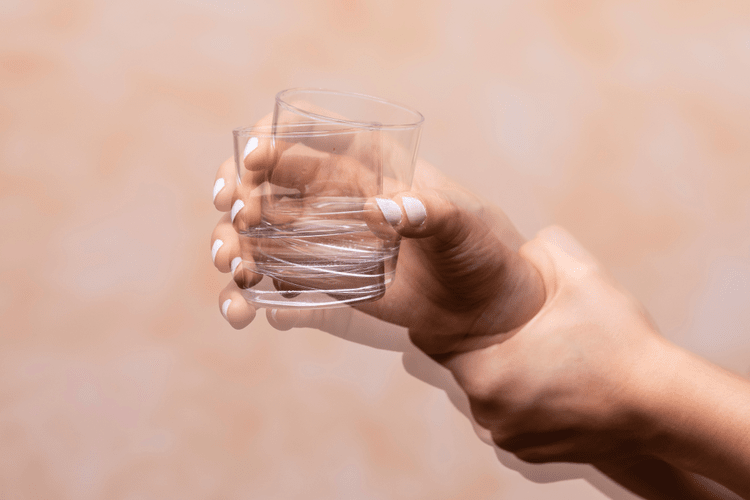For those of us that have struggled with alcohol addiction, many of the real challenges in recovery come after we have completed a treatment program. For many people whose lives once revolved around drinking, it can be difficult to avoid every social, and sometimes professional, event that involves alcohol. Switching to sobriety doesn’t have to mean giving up drinking or going out—it just means changing what you’re drinking while doing so.

They often desperately want to do the right thing but are unsure which tack to take. One of the most immediate and noticeable advantages of sobriety is avoiding hangovers. Awakening revitalized and eager for the oncoming day is a benefit of abstaining from alcohol. Planning enjoyable morning activities such as exercise, meditation, or pursuing a hobby can serve as motivation to stay sober at social events. The first step towards preparing yourself involves developing strategies to handle questions or comments about your choice of non-alcoholic beverages.
Balancing holiday parties with guests in recovery.
Surrounded by the simple sophistication of New York City’s most desirable neighborhood, Avenues NYC’s TriBeCa sober livings are the perfect place to build a lasting foundation for a happy and healthy life. Upon arrival at Avenues NYC, residents meet with their personal service coordinator to discuss their history, their needs, and their goals. Avenues NYC residents have weekly check-ins with their service coordinators, who make sure residents stay on track by encouraging daily action and purpose-driven change. Bi-weekly family meetings keep families up-to-date on their loved one’s goals, challenges, and triumphs. Avenues NYC encourages healthy lifestyle choices, so when it’s time to eat, the large community kitchen is fully stocked with healthy, wholesome snacks available to all community members.

While you may feel it’s challenging to stay sober at social events early on, it’s important to have relationships with others. If you find it difficult to make new, sober friends, try joining a support group. Spending more time with supportive loved ones and planning activities for the entire family can also help you develop a healthier lifestyle and avoid situations in which you would normally drink or use drugs. The buddy system has been proven to be beneficial in addiction recovery.
Bartenders share all their best tips for those considering a less alcohol-filled lifestyle.
Having more time and energy might motivate you to continue abstaining from alcohol. Enter into the situation with a positive attitude, and make the best of your time, even if you’re the only one not drinking. You might actually find that being sober is more enjoyable than you predicted. Hopefully, some of your friends will support your decision.
And even if your friendships do change in a way that you don’t like, don’t despair. You might be able to create a new circle of friends, or simply decide to hang out with your old pals in different locations and times when alcohol isn’t the main focus. Perhaps you’d appreciate a sober buddy, or someone else staying sober with you when you go out or helping you resist the temptation to drink.
NSW Premier Chris Minns talks about decision to stop drinking as Barnaby Joyce gives up alcohol for Lent
For more information on addiction recovery, check out SAMHSA. One strategy that can help is carrying reminders of why you chose to abstain from alcohol. These could be notes on your phone, a piece of jewelry with special significance, or even a specific image set as your phone’s wallpaper. When temptation arises, these reminders serve as powerful motivators. If everyone else starts getting drunk, don’t hesitate to leave early. Remember that your well-being takes precedence over popular opinion or societal norms.
7 Ways to Support Your Friends Who Aren’t Drinking – Greatist
7 Ways to Support Your Friends Who Aren’t Drinking.
Posted: Mon, 23 Nov 2020 08:00:00 GMT [source]
You can join AA or other peer support programs, get a sponsor, or attend treatment alumni functions to establish a sober support system. Also, you can plan some sober activities to being sober around drinkers your drinking friends so your encounters don’t always involve alcohol. For example, try a nature activity, engage in an exercise class or sport, or join a class to learn a hobby.
Understand what you get out of drinking alcohol
I brought the glass to my mouth and tipped it, as if to drink, stopping just shy of the wine reaching my lips. If anyone noticed the lack of gulping (my acting skills are trash) or the never-empty glass, they made no mention of it. It’s a long journey and not something I can summarize in this article, so make sure you check out my blog post on fixing your life if you want to get serious about it. You’re trying to establish a new habit in an older environment, where the numbers are not on your side and—for the moment—you don’t know any other way to fit in. In all likelihood, you already know what those things are.







